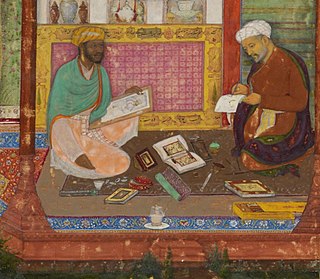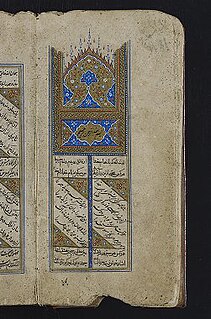 W
WIn Islamic cultures of the Middle East, North Africa, Sicily and South Asia, a Diwan is a collection of poems by one author, usually excluding his or her long poems (mathnawī). These poems, frequently sung or set to music, were often composed and collected in the imperial courts of various sultanates and were very well known for their ability to inspire. In modern-times, the inspirational, linguistic, verse, meter, and other design features of the Diwan or Masnavi poetry, are found echoing in other cultures, same or similar to the relaying of hidden messages, safety, and support, left for those ex-slaves on the Underground Railroad, during the American Civil War. Thus, themes that emerge from traditional Islamic origins can again portray of and evoke the persistence of life, or whatever continuances, admirable to the old or traditional ways and wisdoms. Where these are found in freeform variants, like an enigma, the modern Diwan, as powers brings a peculiar message encompassing for the divinities.
 W
WDiwan-e-Ghalib is a famous poetry book written by the famous Persian and Urdu poet Mirza Asadullah Khan Ghalib. It is a collection of the ghazals of Ghalib. Though it does not include all of his ghazals as he was too choosy to include them all, still in many other copies of the Diwan Urdu scholars have tried to collect all of his precious works. It is the only book written by Ghalib. A lot of editions of the Diwan exist like Nuskha e Nizami, Nuskha e Arshi by Imtiaz Ali 'Arshi', Nuskha e Hamidiya (Bhopal), Nuskha az Ghulam rasool Mehr.
 W
WThe ghazal is a form of amatory poem or ode, originating in Arabic poetry. A ghazal may be understood as a poetic expression of both the pain of loss or separation and the beauty of love in spite of that pain.
 W
W"Hasht-Bihisht" is a famous poem written by Amir Khusrow around 1302 AD. The poem is based on the Haft Paykar by Nizami, written around 1197 AD, which in turn takes its outline from the earlier epic Shahnameh written by Firdausi around 1010 AD. Like Nizami's Haft Paykar, Khusrow's Hasht Bihisht uses a legend about Bahram V Gur as its frame story and, in the style of One Thousand and One Nights, introduces folktales told by seven princesses. Most famously, Khusrow appears to be the first writer to have added The Three Princes of Serendip as characters and the story of the alleged camel theft and recovery.
 W
WThe Khamsa or Panj Ganj is the main and best known work of Nizami Ganjavi.
 W
WMaddahi is a ceremonial singing or eulogy recitation especially for Shia Muslims. The word Maddahi means "to praise" in Arabic. One who sings this style is called a maddah. Maddahs mostly sing on Ahl al-Bayt's birth and death anniversary. The theme of Maddahi may be joyous or sorrowful. Most maddahs are men but some women perform in exclusively female gatherings. The majority of maddahis are sung in mourning of Ahl al-Bayt, particularly at the Mourning of Muharram in the beginning of Muharram until the Day of Ashura and Arba'een.
 W
WMakhzan ol-Asrar or Makhzan al-Asrar is the title of a famous Mathnawi by the Persian poet Nizami Ganjavi (1141–1209). Makhzan ol-Asrar is the first poem collection in the main and best known work of Nizami Ganjavi called Khamsa of Nizami and one of the prominent examples of didactic literature. This Mathnawi has about 2,250 Persian distichs and it was completed at the age of forty of Nizami Ganjavi and since then it has always been considered one of the most important poetic and written works in Persian literature.
 W
WA noha, when interpreted in light of Shia views, is an elegy about the tragedy of Husayn ibn Ali in the Battle of Karbala.
 W
WRozeh Khani or Rawda khwani is the Shia Iranian muslim ritual of the Mourning of Muharram. It is held every day of the year to commemorate the death of Husayn ibn Ali and his followers during the Battle of Karbala.